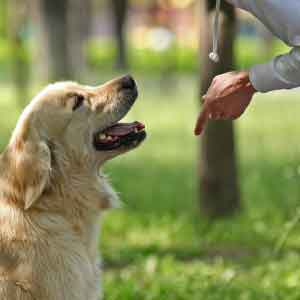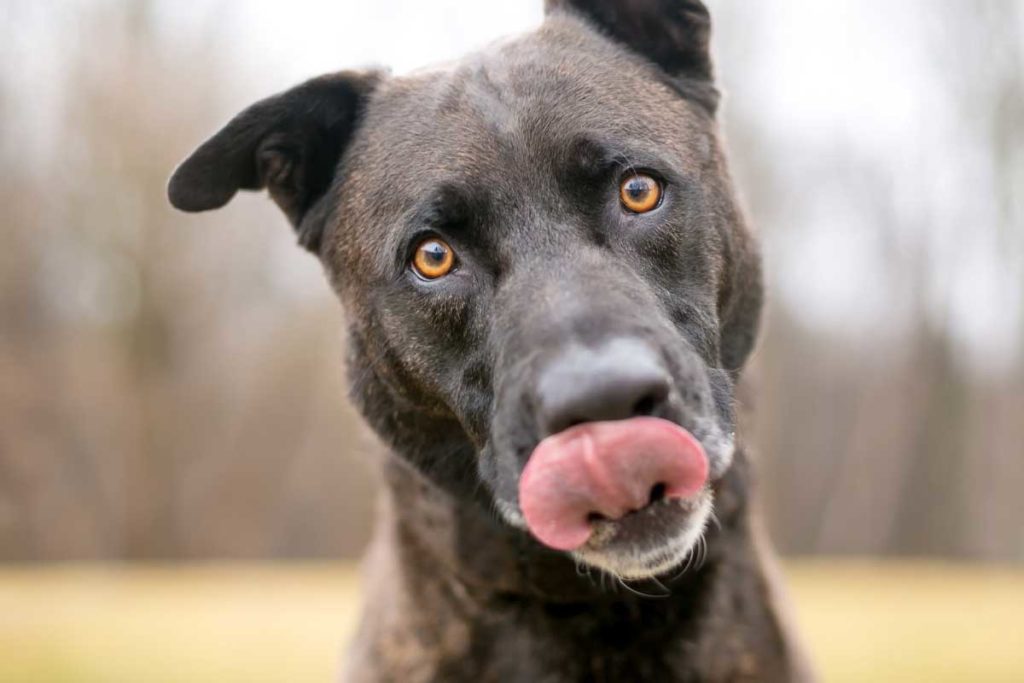They drink from the toilet, roll in mud, and stick their noses under the tail of every dog they meet. Our pups are gross, but of all the disgusting habits our canine companions have, eating poop takes the cake. Pet parents far and wide hate their dog’s tendency to eat stool, whether it be their own or that of another dog or animal.
Coprophagia, the scientific term for feces eating, is a common phenomenon among dogs. It has both behavioral and physiological reasons behind it. Our pets seem entirely clueless to how foul this is, so how can we get them to ditch the habit? While they’re still hunting out stinky snacks in the backyard, should we worry?
Table of contents
- Why is your pooch feasting on feces?
- Should you be worried about your pup eating poop?
- How to discourage “stool sampling”
Why is your pooch feasting on feces?
There are several possible explanations for why your pooch is obsessed with eating poop. Understanding these reasons helps pet parents address any potential underlying issues and get their pup to kick the yucky habit.
Instinct
As a species, dogs evolved as scavengers, eating whatever they were able to find. Even as our domesticated pets, some pups still have an instinctive urge to eat anything that may offer them nutrients. This may explain why your canine companion eats feces. This survival behavior helped their ancestors fend off starvation when food was scarce.
Getting rid of waste by eating it is also a way for wild dogs to cover their tracks (or scents) when it comes to avoiding predators. Pet owners of multi-dog households in which one pup is either sick or aging may witness the healthy dog eating the poop of the weaker dog. Experts from the American Kennel Club (AKC) hypothesize that this may be related to an instinct to protect the pack from potential harm.
Moms and pups
It’s fairly common for mother dogs to keep their puppies and living space clean during the first few weeks after birth by eating the puppies’ stool. According to veterinarians at VCA Animals Hospitals, puppies often learn this feces eating behavior from their mom. They can develop a habit that may follow them out of puppyhood. Seemingly mimicking the behavior of their mother, puppies are naturally likely to eat their own poop (autocoprophagia). THey may also eat poop from other dogs (allocoprophagia) as well as poop from other animals.
Just like human babies and young children, a primary way puppies explore and learn about the world around them is by putting stuff in their mouth regardless of whether or not it’s edible. Coprophagia in puppies is part of the early development process, notes AKC. Fortunately, most puppies will grow out of this behavior with time.
Dietary deficiencies
VCA Animal Hospitals notes that any medical problem that leads to a decrease in nutrient absorption, increase in appetite, or causes gastrointestinal upset can cause your dog to suddenly show interest in feces. These medical conditions can include diabetes, Cushing’s disease, thyroid disease, Inflammatory Bowel Disease (IBD), or prescription drugs such as steroids. In cases of Exocrine Pancreatic insufficiency (EPI), dogs have a deficiency of pancreatic enzymes. This causes them to be unable to properly digest food.
Gastrointestinal parasites can also lead your pooch to crave stool. These tiny pests, such as roundworms and hookworms, feed on nutrients ingested by their hosts. This robs infected dogs of essential nutrition. When they aren’t getting enough from their standard meals, it’s common for dogs to seek supplemental nutrition from their surroundings. This might include feces.
The right food makes a world of difference for dogs. It’s important that pet parents feed their canine companions nutrient-rich, digestible food in sufficient quantities. This keeps pups healthy and on the move. Dogs can turn to eating poop when they’re underfed or not receiving adequate nutrients from their regular meals. And if stool contains undigested food material, it makes sense for puppies or malnourished dogs to go back for seconds.
Stress
According to experts at AKC, there a number of stress-inducing situations that could result in stool eating. In some cases, eating poop may be a self-soothing mechanism, or may remove evidence of an accident that they associate with severe punishment.
Should you be worried about your pup eating poop?
Generally, dogs eating their own poop is harmless. Don’t get us wrong—it’s disgusting. But it’s not unsafe, according to AKC, which is a significant concern for many pet owners struggling with their dog snacking on feces.
There is, however, some reason for concern when your pup is eating the poop of other dogs or animals. Some pups, for example, like horse manure or goose droppings. AKC warns that consuming other animals’ stool can expose your furry friend to unknown parasites, viruses, and toxins. Consult your veterinarian if your pup eats foreign feces and exhibits symptoms such as lethargy, vomiting, or diarrhea.
How to discourage “stool sampling”
Most pet owners consider it bad news that their dog finds eating poop appealing. The good news is that it’s a normal behavior and will likely fade in puppies. It’s crucial to first investigate any potential underlying causes. Does your dog have enough healthy food, medical conditions, or stress? Addressing these potential issues of nutritional deficiencies and malabsorption is important.
- Vitamin and or enzyme supplementation can help address nutrient deficiencies and malabsorption, particularly if your dog is not eating a complete and balanced dog food approved by the American Association of Feed Control Officials. A multivitamin or single-ingredient vitamin or mineral supplement may provide dogs with the nutritional value they’re missing from their food (which is uncommon). Specific enzyme products can help a dog that has a problem with pancreas secretion (known as Exocrine Pancreatic Insufficiency) and can support healthy digestion. Many over-the-counter “enzymes” are not proven to help that much but are not harmful to try. Many dog owners are desperate and these products claim to help with nutrient absorption so that your pup isn’t tempted to seek out additional food sources (poop).

As always, consult your veterinarian about potential underlying medical conditions that can lead your pup to eat feces. Pet parents should also seek professional guidance before supplementing your dog’s diet.
As with most other behavioral problems in dogs, early intervention is crucial for helping to reduce the possibility that the behavior will become a long-term practice. If your dog seems to have picked up a nasty habit, there are some things you can do to help them ditch the poo eating:
- Keep it clean – Because dogs may turn to eating poop as a way to clean their living space, you can eliminate the need for them to worry about tidying in the first place. Keep your pup’s area, including the backyard, clean by picking up after your pets as soon as possible so there isn’t any poop for them to pick up.
- Restrict access – Avoid places on your daily dog walk route that are notorious for left-behind stools. If your canine companion likes to visit your cat’s litterbox for a snack, keep it out of reach. This goes hand-in-hand with supervising your dog to make sure they don’t eat anything they shouldn’t. Pay attention to and keep your furry friend on a leash during walks and monitor them closely during any backyard time.
- Training – Even when they don’t seem like it, dogs are smart creatures, and most are eager to please. Training your pup to respond to “leave it” and or “come” commands can be tremendously helpful in stopping a poop-eating behavior. Dog parents can train their furry friends to come to them for a tasty treat or other reward as soon as they go potty. This gives you the opportunity to clean up before your dog has a chance to do so.
- Make it yucky – Taste-aversion products and poop-eating deterrents can be added to food and treats to make snacking on stools less appealing. AKC recommends looking for products that contain monosodium glutamate, chamomile, yucca, garlic, or parsley. There are tons of products on the market formulated specifically to discourage your pup from eating poop. The efficacy of many of these products is not really tested – but may be worth a try.
There are also DIY options that you can purchase at any grocery store. While canned pumpkin puree tastes great the first time, it makes dog poop taste particularly bad. You can try adding a few tablespoons of pure pumpkin to your dog’s food to discourage feces eating. Some pet parents suggest that the same can be done with pineapple and meat tenderizers. Even better, unseasoned meat tenderizer powders are tasteless, so your pup probably won’t even notice! One mouthful of a bad-tasting stool and your dog will surely learn its lesson.
Any health or medical information in ElleVet blogs is from a variety of public and reputable sources. This information is intended as an education resource only and is not a substitute for expert professional care.









